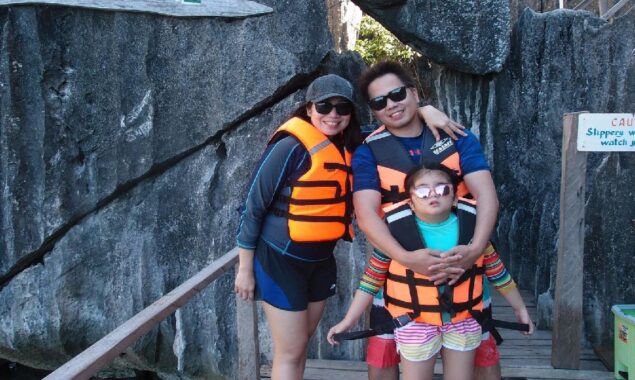Synopsis
A 12-year-old young girl who has autism has been banished from moving to New Zealand - and being brought together with her family - on the grounds that the country's migration arrangements reject individuals with handicaps or sicknesses which might trouble the wellbeing framework.

New Zealand doesn’t allow residency to disable people; an autistic girl can’t reunite with family
A 12-year-old young girl who has autism has been banished from moving to New Zealand – and being brought together with her family – on the grounds that the country’s migration arrangements reject individuals with handicaps or sicknesses which might trouble the wellbeing framework.
Arianna Alfonzo has been residing with her mom in the Philippines while her dad, Allan, resides and works in Christchurch, where he has a floor covering laying business.
Both he and Arianna’s mom, Lorigail, have extremely durable residency status in New Zealand.
Arianna has been isolated from her dad for a very long time
However, their girl was first denied a visa in 2017 after she was considered not to have met the “adequate principles of wellbeing”, a migration strategy that looks at whether an individual would cost New Zealand more than $41,000 (£23,170) north of five years.
Thus, the family has missed spending birthday events and Christmases together, with Arianna isolated from her dad for a portion of her young life.
The Alfonzo family has since burned through thousands on lawful charges yet the main way Arianna can enter the nation and be brought together with her dad is assuming that she is given a clinical waiver.
Mrs Alfonzo told Sky News Arianna’s mental imbalance was a “favoring” to the family, portraying her as a “cheerful” kid with an “irresistible” grin, who loves to investigate sea shores.
“It is terrible as far as we’re concerned as a family since youngsters like Arianna should be dealt with equivalent and fair,” she said.
“Youngsters with inabilities should be adored and acknowledged so they can likewise see their worth as an individual in the public arena.”
The family is currently appealing to the Associate Minister of Immigration, Phil Twyford, in a bid to get Arianna a clinical exclusion.
Last month, Mr Twyford’s office composed a four-sentence letter to the family in which he said: “I have painstakingly thought to be your portrayals. I exhort I am not ready to mediate for this situation.”
Mrs Alfonzo said her little girl has the right to live some place she can be treated with “pride”.
She said: “It is a superior life for us, a spotless climate, and an exceptionally quiet country for us to live in.”
Green Party MP Ricard Menedez has been working with the family to get Arianna passage into the nation and to change the public authority’s “ableist” and “dehumanizing” strategy.
“Handicapped and neurodivergent transients shouldn’t need to go through dehumanizing cycles of individual requests to demonstrate their humankind and have their basic liberties perceived. Therefore we’re working with @endashnow + others to end the ableist adequate guidelines of wellbeing strategy,” he composed on Twitter.
Impaired and neurodivergent transients shouldn’t need to go through dehumanizing cycles of individual requests to demonstrate their humankind and have their common freedoms perceived. For this reason we’re working with @endashnow + others to end the ableist adequate principles of wellbeing strategy
— Ricardo Menéndez (@RMarchNZ) April 25, 2022
Under New Zealand’s migration rules, the “satisfactory norms of wellbeing” likewise avoid individuals on dialysis, those with serious hemophilia, anybody that demands full-time care, those proposing to conceive an offspring in the nation, and neurological problems (counting Alzheimer’s and Parkinson’s), among others.
The case is additionally being supported by Juliana Carvalho, an inabilities advocate who had her New Zealand residency denied two times since she has lupus and is paraplegic. She has since been conceded the option to stay in New Zealand however is presently crusading to change the approach.
“I truly need you to make a move,” she composed on Facebook.
“Come at the situation from this family’s perspective. Sympathize with their aggravation of being isolated. Feel their expectation of being brought together. Sympathize with their distress of being unjustifiably hurt. Feel their solidarity to battle for change, for an opportunity.”
Mr Twyford has been drawn nearer for input. Notwithstanding, a representative for the partner serve told the New Zealand Herald he wouldn’t examine individual cases.
In March, the public authority said it wouldn’t audit its migration strategy.
For the latest International News Follow BOL News on Google News. Read more on Latest International News on oldsite.bolnews.com
Read More News On
Catch all the International News, Breaking News Event and Latest News Updates on The BOL News
Download The BOL News App to get the Daily News Update & Follow us on Google News.




